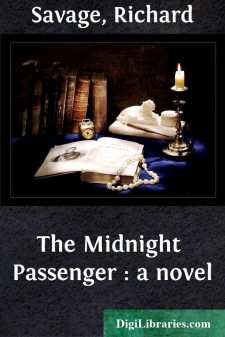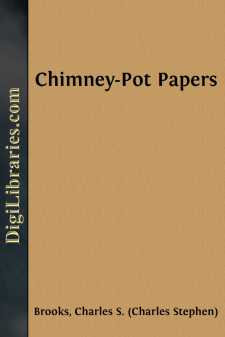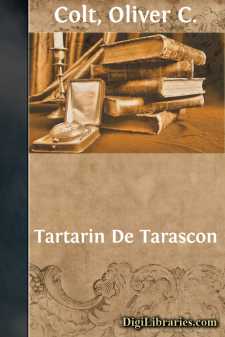Literary Collections
- American 84
- Ancient, Classical & Medieval 14
- Asian 1
- Australian & Oceanian 1
- Canadian 55
- Continental European 121
- English, Irish, Scottish, Welsh 179
- Essays 160
- General 24
- Letters 46
- Middle Eastern 1
Literary Collections Books
Sort by:
by:
Richard Savage
CHAPTER I. THE DANUBE PICTURE. There was no air of uncertainty upon the handsome countenance ofMr. Randall Clayton as he stepped out of the elevator of a sedateFourteenth Street business building and approvingly sniffed theApril morning breeze. On this particular Saturday of ninety-seven, the shopping multitude was already pouring from the Scylla of Simpson, Crawford & Simpson's on Sixth...
more...
THE DAWN OF A GALA DAY To begin with the old rigmarole of childhood. In a country there was a shire, and in that shire there was a town, and in that town there was a house, and in that house there was a room, and in that room there was a bed, and in that bed there lay a little girl; wide awake and longing to get up, but not daring to do so for fear of the unseen power in the next room—a certain...
more...
by:
George Meredith
THE WHITE ROSE CLUB In those lusty ages when the Kaisers lifted high the golden goblet of Aachen, and drank, elbow upward, the green-eyed wine of old romance, there lived, a bow-shot from the bones of the Eleven Thousand Virgins and the Three Holy Kings, a prosperous Rhinelander, by name Gottlieb Groschen, or, as it was sometimes ennobled, Gottlieb von Groschen; than whom no wealthier merchant bartered...
more...
by:
William Painter
INTRODUCTION. A young man, trained in the strictest sect of the Pharisees, is awakened one morning, and told that he has come into the absolute possession of a very great fortune in lands and wealth. The time may come when he may know himself and his powers more thoroughly, but never again, as on that morn, will he feel such an exultant sense of mastery over the world and his fortunes. That image seems...
more...
Part 1—Chapter I. Like most other Children, who should be my Godfather is decided by Mammon—So precocious as to make some Noise in the World, and be hung a few days after I was born—Cut down in Time, and produce a Scene of Bloodshed—My early Propensities fully developed by the Choice of my Profession. Those who may be pleased to honour these pages with a perusal, will not be detained with a...
more...
The Chimney-Pots. y windows look across the roofs of the crowded city and my thoughts often take their suggestion from the life that is manifest at my neighbors' windows and on these roofs. Across the way, one story lower than our own, there dwells "with his subsidiary parents" a little lad who has been ill for several weeks. After his household is up and dressed I regularly discover him...
more...
by:
William Carleton
CHAPTER I. One evening in the beginning of the eighteenth century—as nearly as we can conjecture, the year might be that of 1720—some time about the end of April, a young man named Lamh Laudher O'Rorke, or Strong-handed O'Eorke, was proceeding from his father's house, with a stout oaken cudgel in his hand, towards an orchard that stood at the skirt of a country town, in a part of the...
more...
by:
Oliver C. Colt
Introduction. The tale of Tartarin de Tarascon was written by Alphonse Daudet in 1872, and was one of the many works which he produced. In it he pokes gentle fun at a type of Frenchman who comes from the Midi, the area where he himself was born. Tartarin has characteristics which may remind the English-speaking reader of Toad of Toad Hall, a boastful braggart, easily deceived, but good-hearted au fond....
more...
THE COLOUR OF LIFE Red has been praised for its nobility as the colour of life. But the true colour of life is not red. Red is the colour of violence, or of life broken open, edited, and published. Or if red is indeed the colour of life, it is so only on condition that it is not seen. Once fully visible, red is the colour of life violated, and in the act of betrayal and of waste. Red is the...
more...
My name is Hugh Paret. I was a corporation lawyer, but by no means a typical one, the choice of my profession being merely incidental, and due, as will be seen, to the accident of environment. The book I am about to write might aptly be called The Autobiography of a Romanticist. In that sense, if in no other, I have been a typical American, regarding my country as the happy hunting-ground of...
more...











